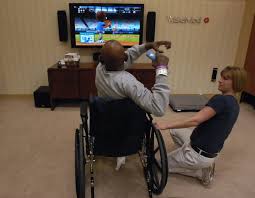 Duties and
Responsibilities: Recreational therapists work in a variety of settings.
Therapists often work in hospitals or nursing and residential care facilities.
They also work in places such as substance abuse centers, rehabilitation
centers, special education departments, and parks and recreation departments.
Duties and
Responsibilities: Recreational therapists work in a variety of settings.
Therapists often work in hospitals or nursing and residential care facilities.
They also work in places such as substance abuse centers, rehabilitation
centers, special education departments, and parks and recreation departments.
They may use
offices for planning or other administrative activities, such as patient
assessment, but may travel when working with patients. Therapists and their
patients go to fields and parks for sports and other outdoor activities.
Some therapists may
spend a lot of time on their feet actively working with patients. Recreational
therapists also may need to physically assist patients or lift heavy objects
such as wheelchairs.
Salary: $42,280
Education: Most Recreational
therapist need a bachelor’s degree in recreational therapy or a related field.
Though less common, associate’s, master’s, and doctoral degrees are also
available.
Recreational
therapy programs include courses in assessment, human anatomy, medical and
psychiatric terminology, characteristics of illnesses and disabilities, and the
use of assistive devices and technology. Bachelor’s degree programs usually
include an internship.